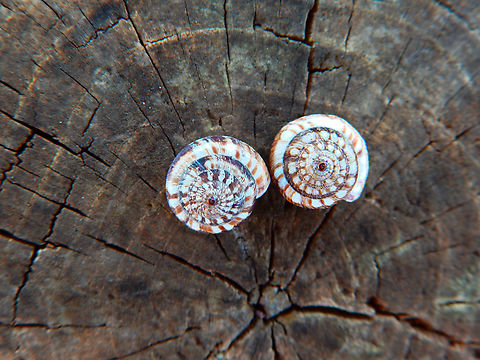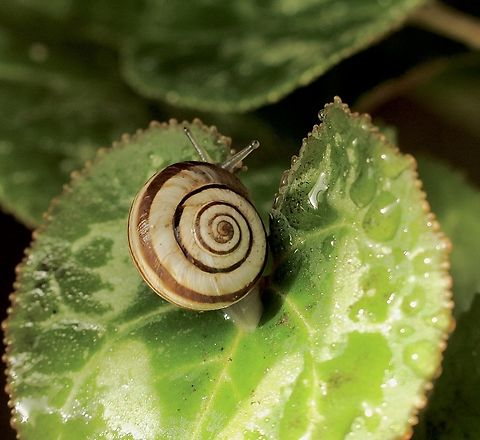
Appearance
The shell is from 6 to 19 mm in height and 8 to 25 mm in width.The coloration of the shell is quite variable, but there is often a creamy-white background, with a variable number of pale to darker brown markings. Some shells are banded at the periphery and on the underside.For terms see gastropod shell
The 15 x 12–23 mm. shell has 4.5-5.5 convex whorls. The last whorl is initially angulated or rounded. The aperture is rounded with a whitish or reddish lip inside and margin is not reflected, The umbilicus is always open, 1/10-1/6 of shell diameterand sometimes slightly excentric. The colour of the periostracum is whitish or yellowish, sometimes with red hue and usually with two brown colour bands on the upper side and 3-4 narrower bands on the lower side, initially finely ribbed, weakly striated at lower whorls.

Distribution
This snail is endemic to Mediterranean and Western Europe, including the British Isles. This species has been recovered from the Roman occupation of Volubilis, an archaeological site in present-day Morocco."Cernuella virgata" is an invasive species and an agricultural pest in parts of Australia, where it arrived around 1920. In Australia it is known as the "common white snail".
Another land snail which is present as an invasive in Australia, and which is sometimes confused with "Cernuella virgata" is the species "Theba pisana". It is somewhat similar in appearance, and lives under similar circumstances. "Theba pisana" is however a larger species with a more inflated shell, lower spire and a nearly covered umbilicus.
Comparison between shells of "Cernuella virgata" and "Theba pisana":
Behavior
This species aestivates after climbing to the top of vegetation. This habit is problematic for farmers engaged in crop harvesting, because numerous snails are collected along with the crop.The size of the egg is 1.5 mm.References:
Some text fragments are auto parsed from Wikipedia.